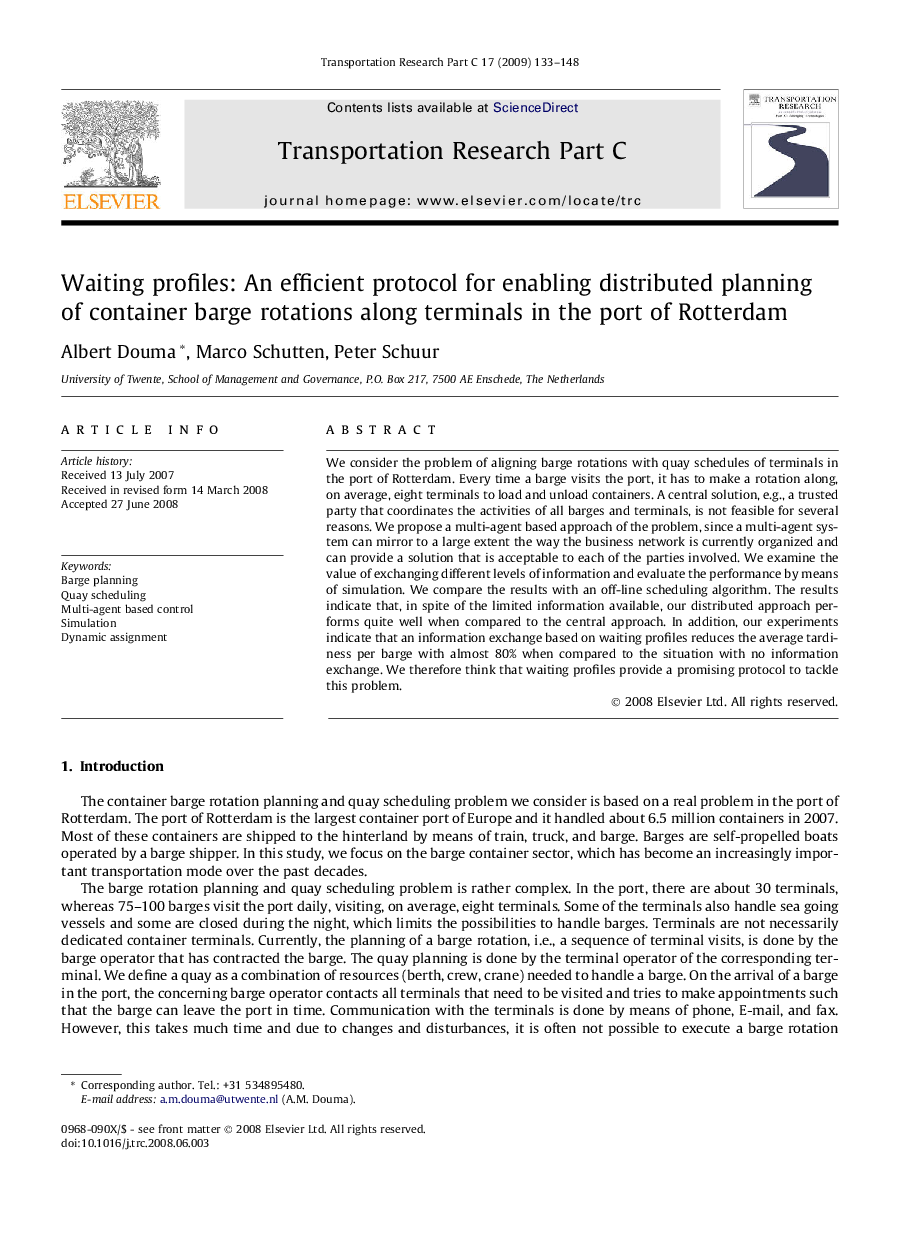| Article ID | Journal | Published Year | Pages | File Type |
|---|---|---|---|---|
| 526668 | Transportation Research Part C: Emerging Technologies | 2009 | 16 Pages |
We consider the problem of aligning barge rotations with quay schedules of terminals in the port of Rotterdam. Every time a barge visits the port, it has to make a rotation along, on average, eight terminals to load and unload containers. A central solution, e.g., a trusted party that coordinates the activities of all barges and terminals, is not feasible for several reasons. We propose a multi-agent based approach of the problem, since a multi-agent system can mirror to a large extent the way the business network is currently organized and can provide a solution that is acceptable to each of the parties involved. We examine the value of exchanging different levels of information and evaluate the performance by means of simulation. We compare the results with an off-line scheduling algorithm. The results indicate that, in spite of the limited information available, our distributed approach performs quite well when compared to the central approach. In addition, our experiments indicate that an information exchange based on waiting profiles reduces the average tardiness per barge with almost 80% when compared to the situation with no information exchange. We therefore think that waiting profiles provide a promising protocol to tackle this problem.
